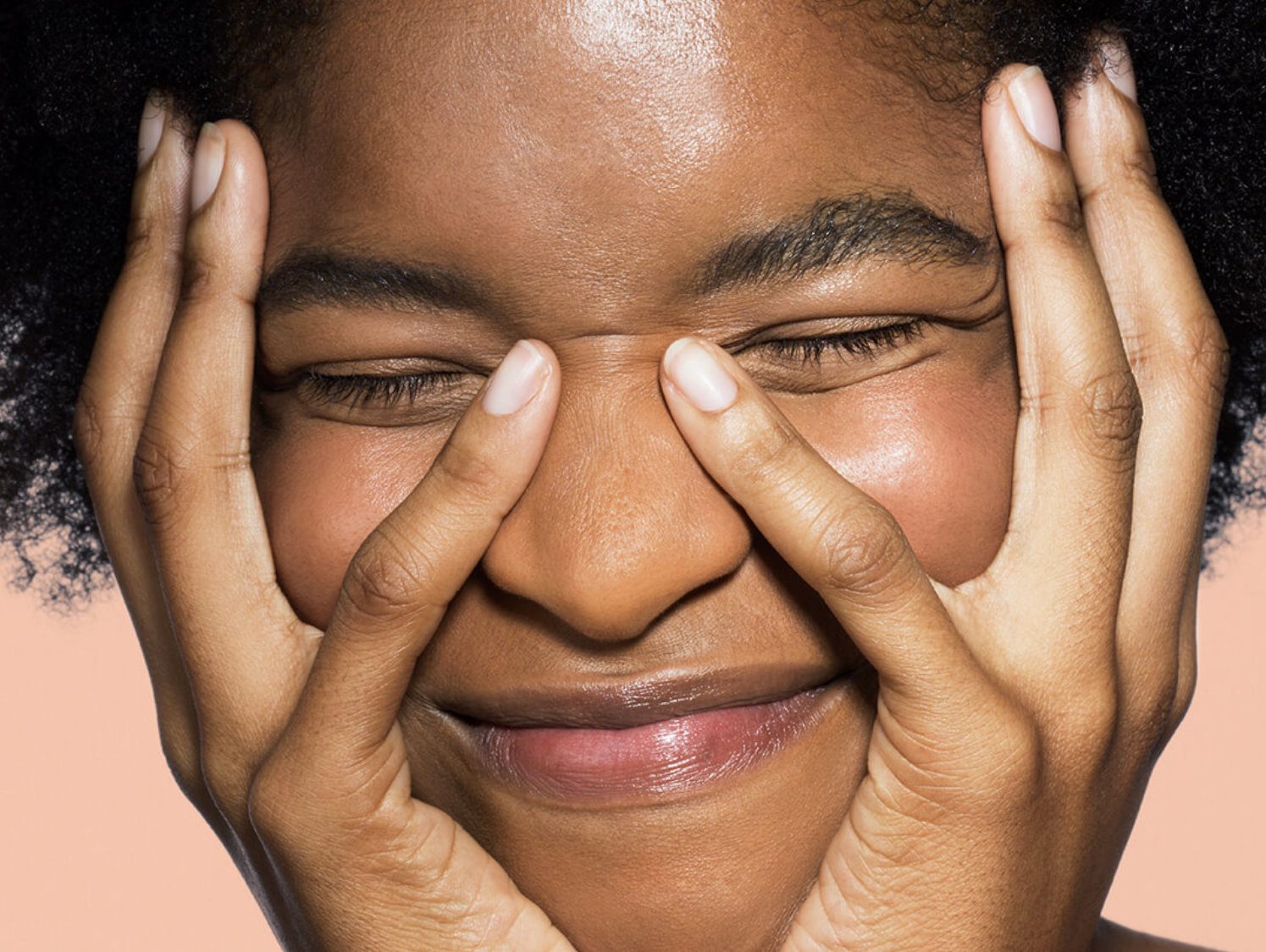Whether you've had
acne-prone skin since you were a tween, or you're just starting to deal with
acne as an adult, one thing's for sure—breakouts are a bummer. It's almost as if your skin behaves and waits for the perfect time to put on a show (like a wedding, an important presentation,
a first date, or that high school reunion you've been anticipating), and then boom—the pimples just appear out of nowhere. Bottom line:
Acne happens to everyone and for various reasons.
Acne breakouts can be triggered by your medication, diet, allergies, skin conditions, environmental stressors, or just being human. It's no secret that the past few pandemic-ridden years have been filled with stress triggers for all of us. From WFH and job-related woes to isolation and mask-wearing, our bodies, minds, and skin have undergone very real increased physical and psychological stress levels.
So, if you're breaking out now more than ever, and you can't blame the onset of puberty, stress could likely be the cause of your adult acne. We talked to board certified dermatologists Anthony Rossi Jr., MD, and Rebecca Marcus, MD, FAAD, for expert advice on the causes of stress acne, how to deal with the unexpected onset of zits galore, and what skincare products and medications can potentially save the day.
What Is Stress Acne?
First, let's talk about stress itself and how it impacts your body. Stress—whether based on real issues or what we've created in our heads—can elicit a physiological response that impacts how your body works inside and out. It can cause
stress-related hair loss, eczema and psoriasis flare-ups, wrinkles, dark circles, premature gray hair, autoimmune issues, and more.
In fact,
one dermatology study showed that 71 percent of adult women contributed stress to the cause of their adult onset acne. “Generally speaking, many people will say that they break out with acne flares during periods of stress, and there's some biochemical basis for this,” Dr. Rossi tells us.
But what's the stress-to-acne-formation pipeline? Dr. Marcus says acne is caused by three main factors: hormones, clogged pores, and bacteria. When there's stress, “It can cause hormonal changes that trigger a cascade of inflammation and increased oil production, which then leads to acne,” she explains. “All acne is hormonal in some way.”
What Does Stress Acne Look Like?
Stress acne tends to pop up on the oiliest parts of your face, thanks to excess sebum production. “It mainly appears in oil gland-rich areas such as the nose, forehead, chin, and mandible,” Dr. Rossi says. Stress-related breakouts tend to appear quickly, with multiple breakouts that can vary in size and appearance. They can look
textured, they can look like
blackheads or
whiteheads, or they can look red and inflamed, and your skin may look shinier due to the overproduction of oil. All acne even has the potential to manifest as cysts. So, in other words, you can't identify stress-induced acne by appearance alone.
While
breakouts that happen cyclically (like ones surfacing around that time of month) are also related to fluctuations in hormones, you'll know the difference because of their timing and whether or not they appear in the same areas each month (e.g., your jawline and cheeks). “Many times these acne lesions are cystic or papular pustular instead of the open comedones (blackheads) that are more common in comedonal acne,” Dr. Rossi says.
The Best Stress Acne Treatments
Let's begin with the basics: Focus on your overall physical and mental health and wellness. “Start hydrating more, improve your intake of fruits and vegetables, exercise daily, and become even better at your skincare routine (focusing on twice a day), to cleanse and hydrate,” says Dr. Rossi. All of these small changes can help boost your immune system from the inside out, while the following acne treatments can help from the outside in.
1. Benzoyl Peroxide Might Be Your BFF
2. Niacinamide Is Your Secret Weapon
3. AHAs Are Amazing for Acne


